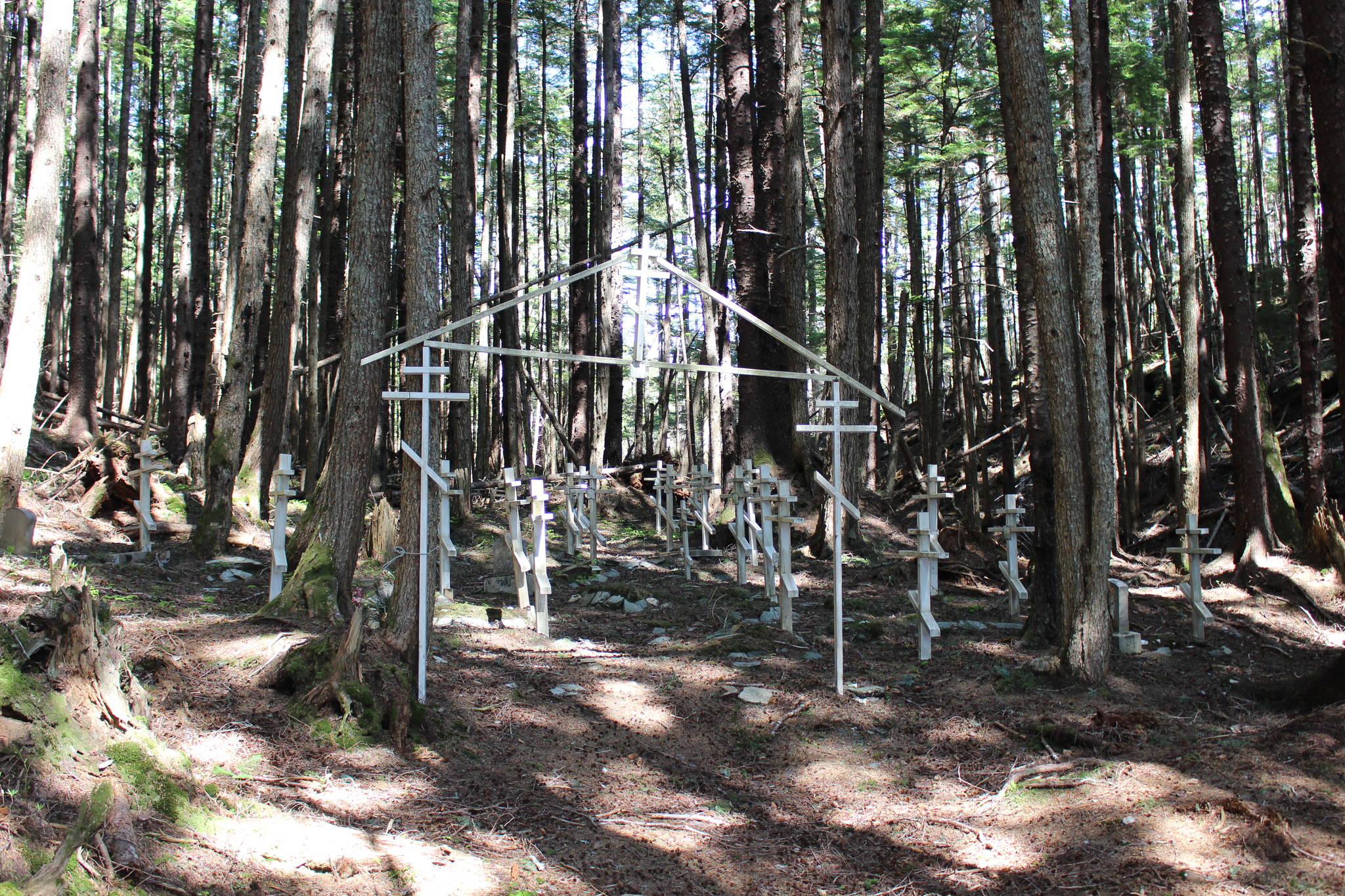The Alaska House of Representatives passed a bill Friday to expand the Funter Bay Marine Park to include a small cemetery where dozens of Alaska Natives who died as a result of forced relocation are interred.
The cemetery, Unangax̂ Gravesite at Funter Bay, is a small plot on just over 250 acres of state land being managed by the Department of Natural Resources. The bill would transfer management of the site from the Division of Mining, Land and Water to Parks and Recreation, still within DNR but affording the land a greater degree of protection from future development.
“The most important part of this bill is to recognize that history,” said Juneau resident Martin Stepetin Sr., a supporter of the bill.
During World War II, dozens of Aleut people from the villages of St. Paul and St. George on the Pribilof Islands in the Aleutians were forcibly relocated to the area by the federal government. Stepetin’s grandparents were among the group, he said in an interview with the Empire, and it’s a part of Alaska’s history he thinks should be highlighted.
“My people, my grandparents, were brought down here from the Aleutians, basically as slaves of the federal government,” Stepetin said.
[Elected officials: Safe mining needed for salmon]
Villagers were taken to a former cannery site and left with insufficient supplies in housing without insulation or heating, according to a National Park Service history of the site. About 10% of the residents died, including children, Stepetin said, as the authorities that relocated people there didn’t have a plan for how they would survive there.
The cemetery has since fallen into disrepair but Stepetin said by designating the site as a park, the area will be protected from future development.
But that protection is what several Republican lawmakers said is concerning on the floor of the House of Representatives on Wednesday when the bill was first heard. The land being moved into conservation is valuable to the state, said Rep. Kevin McCabe, R-Anchorage, and the state was forfeiting potential future revenue for selling the land.
On Wednesday McCabe introduced a bill reducing the amount of land being transferred from 251 acres to 90, saying so much land was not necessary to honor the history of the site.
“The 180 extra acres is an unneeded transfer of Alaska’s wealth, I think it’s in the best interest of the state as well as the people whose relatives are buried there,” McCabe said of his amendment.
The bill’s sponsor, Rep. Sara Hannan, D-Juneau, noted when introducing the bill the transfer would not cost the state any money as the parcel in question had already been surveyed. To allocate a smaller portion of the land would require an additional survey at cost to the state. Hannan also noted that DNR had stated there was no commercial value to the land, which is why the plot was already being de facto managed by the parks division.
But Rep. David Eastman, R-Wasilla, said Wednesday future technologies might reveal previously unknown mineral deposits on the site and Rep. Chris Kurka, R-Wasilla, called the transfer a “land grab.”
Others in the House balked at the Republicans’ suggestion, with Rep. David Ortiz, I-Ketchikan, asking why the amendment hadn’t been brought forward in the bill’s many committee hearings.
The issue had come up, Stepetin said, but said that in committee meetings where he had testified the cost of the survey had convinced concerned lawmakers to accept the size of the plot. At a March 31, meeting of the House Resources Committee, Rep. George Rauscher, R-Sutton, said he was not entering an amendment to reduce the size of the plot due to the cost of the survey.
“I haven’t submitted (an amendment) this time,” Rauscher said at the meeting, referring to versions of the bill in past Legislatures.
“I have researched the cost, and considered the time element, considered myself that I probably should not offer it,” Rauscher said.
Rauscher voted for McCabe’s amendment but was excused from the call of the House for Friday’s final vote.
Rep. Tiffany Zulkosky, D-Bethel, said she viewed the transfer as an act of reparations for the atrocities committed against the Aleut people.
“That trauma still endures,” she said Friday on the floor of the House. There was a loss of language speakers. There are villages in the Aleutians never repopulated. This opportunity for the state to acknowledge the harm that was done.”
Republicans held there was a more appropriate way to honor the legacy of the people who died there.
“Two wrongs don’t make a right,” said Rep. DeLena Johnson, R-Palmer.
The bill eventually passed with the full plot, but eight Republicans voted against it. It will now move to the Senate.
The historical significance of what happened at the site is important to memorialize, Stepetin said.
“Are we really better than we were 75 years ago,” Stepetin said. “I think we are still capable of treating people like this.”
• Contact reporter Peter Segall at psegall@juneauempire.com. Follow him on Twitter at @SegallJnuEmpire.

